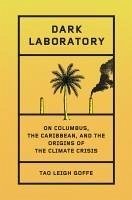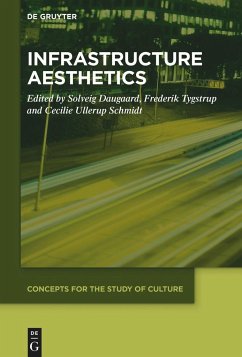
The Metabolic Museum
Versandkostenfrei!
Sofort lieferbar
12,99 €
inkl. MwSt.
Weitere Ausgaben:

PAYBACK Punkte
6 °P sammeln!
For quite some time now, ethnographic museums in Europe have been compelled to legitimate themselves. Their exhibition-making has become a topic of discussion, as has the contentious history of their collections, which have come about through colonial appropriation.Clearly, this cannot continue. That the situation can be different is something that Clémentine Deliss explores in her current publication. She offers an intriguing mix of autobiographically-informed novel and conceptual thesis on contemporary art and anthropology. Reflections on her own work while she was Director of Frankfurt's W...
For quite some time now, ethnographic museums in Europe have been compelled to legitimate themselves. Their exhibition-making has become a topic of discussion, as has the contentious history of their collections, which have come about through colonial appropriation.
Clearly, this cannot continue. That the situation can be different is something that Clémentine Deliss explores in her current publication. She offers an intriguing mix of autobiographically-informed novel and conceptual thesis on contemporary art and anthropology. Reflections on her own work while she was Director of Frankfurt's Weltkulturen Museum (Museum of World Cultures) are interwoven with the explorations of influential filmmakers, artists and writers. She introduces the Metabolic Museum as an interventionist laboratory for remediating ethnographic collections for future generations.
CLÉMENTINE DELISS has achieved international renown as a curator, cultural historian and publisher of artist's books. In her role as Director of the Weltkulturen Museum in Frankfurt, as a curator, and as a professor and researcher at eminent institutes and academies, she focuses on transdisciplinary and transcultural exchanges. She is Associate Curator of KW Berlin and Guest Professor at the Academy of Arts, Hamburg.
Clearly, this cannot continue. That the situation can be different is something that Clémentine Deliss explores in her current publication. She offers an intriguing mix of autobiographically-informed novel and conceptual thesis on contemporary art and anthropology. Reflections on her own work while she was Director of Frankfurt's Weltkulturen Museum (Museum of World Cultures) are interwoven with the explorations of influential filmmakers, artists and writers. She introduces the Metabolic Museum as an interventionist laboratory for remediating ethnographic collections for future generations.
CLÉMENTINE DELISS has achieved international renown as a curator, cultural historian and publisher of artist's books. In her role as Director of the Weltkulturen Museum in Frankfurt, as a curator, and as a professor and researcher at eminent institutes and academies, she focuses on transdisciplinary and transcultural exchanges. She is Associate Curator of KW Berlin and Guest Professor at the Academy of Arts, Hamburg.




















